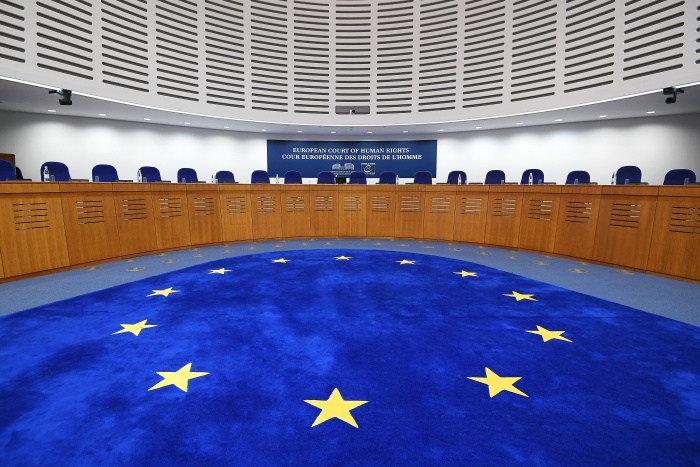An annual report by the Council of Europe’s (CoE) Committee of Ministers on its supervision of the execution of European Court of Human Rights (ECtHR)’s judgments has underlined Turkey’s frequent non-compliance with rulings on the freedoms of expression and the press, Voice of America (VOA) Turkish service reported on Thursday.
The Committee of Ministers, responsible for overseeing the implementation of judgments by the ECtHR, released its 16th annual report for 2022 on Thursday, presenting a general overview of the practices of the 46 member countries of the CoE regarding fundamental human rights.
VOA cited Clare Ovey, head of the Department of the Execution of Judgements at the CoE, as saying during the presentation of the report that Turkey has primarily failed to implement ECtHR judgments related to freedom of expression and freedom of the press.
The report mentioned in particular Turkey’s failure to implement the ECtHR judgment in the case of philanthropist Osman Kavala, which prompted the CoE to launch infringement proceedings against Turkey in February 2022 for its refusal to release Kavala, marking only the second time such a procedure has been invoked against a member state.
“The exceptional proceedings initiated by the Committee … in the case of Kavala v Türkiye in 2021 continued in 2022, as Mr. Kavala remained detained. … The [CoE] continued to follow the case closely at its weekly and Human Rights meetings and established a Liaison Group of Ambassadors to assist the Chair in engaging with the Turkish authorities,” the report said.
Ovey also stated that they expect Turkey to release Kavala but not before the presidential and parliamentary elections scheduled for May 14. She said the committee continues to remind Turkey of its responsibilities on the issue.
Kavala, who has been behind bars since October 18, 2017, despite a 2019 ECtHR ruling that found his detention was in pursuance of an “ulterior motive,” that of silencing him as a human rights defender, was sentenced to aggravated life in April 2022 on charges of instigating the anti-government Gezi Park protests of 2013.
The report further showed that the Committee of Ministers received from the ECtHR 77 cases against Turkey for supervision of their execution in 2022, compared to 106 in 2021 and 103 in 2020, and that Turkey had 480 cases pending execution as of Dec. 31, 2022, including 36 “leading cases” classified under the enhanced procedure.
Of the leading cases under the enhanced procedure, 25 have been pending for five years or more, according to the report, and similarly, 53 of the leading cases under standard procedure have been pending for five years or more.
The report said the pending caseload in 2022 notably included groups of cases concerning the rights to freedom of expression and freedom of assembly, judicial independence, detention without sufficient reasoning, ineffective investigations, impunity and domestic violence.
“In the course of 2022, the Committee of Ministers examined and adopted decisions in respect of 18 leading cases or groups of cases under the enhanced procedure; three of these cases/groups were examined by the Committee at least twice during the year, of which one was also examined at all the Committee’s ordinary meetings,” the report said, referring to the case of Kavala.
The committee closed 107 cases, including three leading cases under enhanced and 23 leading cases under standard supervision, concerning issues such as the right to own property, to a fair trial and to respect for private life, the report said, adding that 13 of the leading cases closed had been pending before the committee for more than 10 years.

